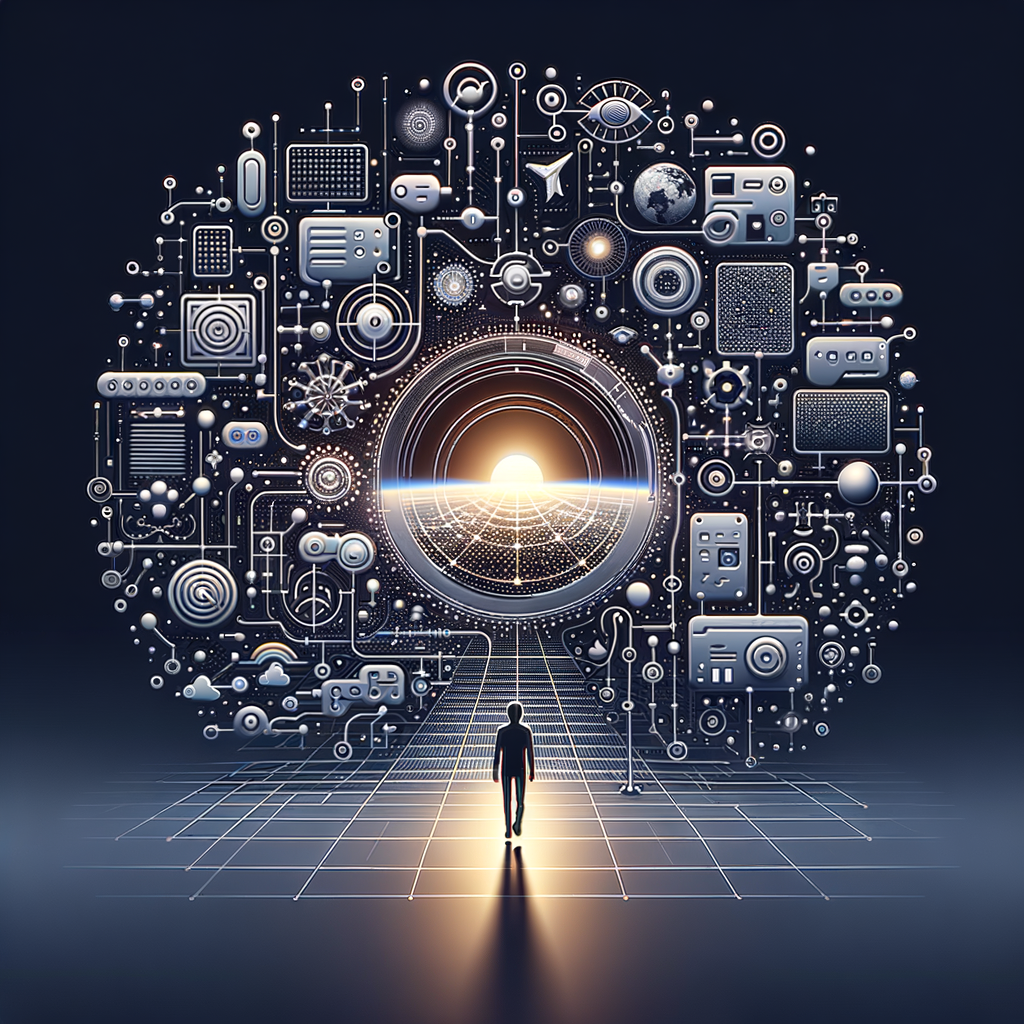
The Future of Entertainment: AI's Role in Creating Immersive Experiences
Explore how artificial intelligence is transforming the entertainment industry by creating deeply immersive experiences that captivate audiences like never before. This blog covers the integration of AI in gaming, virtual reality, and interactive storytelling, providing insights into the technologies driving this transformation and what the future holds for digital media.
The Future of Entertainment: AI's Role in Creating Immersive Experiences
The entertainment industry is on the brink of a profound transformation, driven by the rapid advancements in artificial intelligence (AI). As AI technology continues to evolve, it is not only changing the way entertainment is consumed but also how it is created. This blog explores the impact of AI on the entertainment industry, focusing on how it is being leveraged to create immersive experiences that captivate audiences in ways previously unimaginable.
AI in Gaming
Personalized Gaming Experiences
One of the most significant impacts of AI in the entertainment industry can be seen in gaming. AI technology is enabling personalized gaming experiences, where games adapt to the individual player's style and preferences. Machine learning algorithms analyze player actions and reactions in real-time, allowing the game to adjust difficulty levels, suggest strategies, and even alter narratives based on individual player preferences.
Intelligent NPCs
Non-playable characters (NPCs) in games are becoming more intelligent and realistic. AI algorithms enable NPCs to learn from interactions and evolve, providing players with a more dynamic and engaging gaming experience. This evolution marks a departure from predefined behaviors, offering players unpredictable and challenging interactions.
Procedural Content Generation
AI is also revolutionizing how game content is created. Procedural content generation utilizes algorithms to create game environments, levels, and scenarios. This technology allows developers to create vast, varied, and immersive worlds without manually designing each element, thus saving time and resources while maintaining high-quality standards.
AI in Virtual Reality (VR)
Enhancing Realism
Virtual reality is another arena where AI plays a crucial role in enhancing user experiences. AI contributes to creating highly realistic VR environments through better simulation of natural environments, improved physics engines, and more responsive interactions with virtual objects.
Adaptive Scenarios
In VR, AI helps create adaptive scenarios that change based on user interactions. By analyzing user movements and reactions, AI systems generate more engaging and personalized experiences, whether it be for gaming, virtual tours, or training simulations.
AI in Interactive Storytelling
Dynamic Story Arcs
AI is transforming interactive storytelling by moving beyond static, linear plots to dynamic story arcs that respond to audience input. This technology uses natural language processing and machine learning to understand and predict audience preferences, allowing multiple storyline branches that adapt as the viewer makes decisions.
Enhancing Emotional Connections
Through sentiment analysis, AI can gauge audience emotions and adjust the narrative pacing or tone to enhance engagement and emotional connections, making stories more impactful and memorable.
Future Implications
Evolving Content Creation
AI is democratizing content creation by providing tools and platforms that allow creators to produce high-quality content with fewer resources. From AI-driven video editing to automated sound mixing, these innovations pave the way for more diverse and inclusive storytelling.
Ethical Considerations
With the integration of AI in entertainment, ethical considerations must be addressed. Issues surrounding data privacy, digital addiction, and content bias need to be carefully managed to ensure that the technology benefits society as a whole.
Conclusion
The future of entertainment is set to be transformed by AI, offering new and exciting opportunities for both creators and consumers. As AI continues to advance, the potential for more immersive and personalized experiences grows, paving the way for a new era in digital media. As with any transformative technology, the industry must navigate the ethical challenges and ensure that these innovations contribute positively to society.